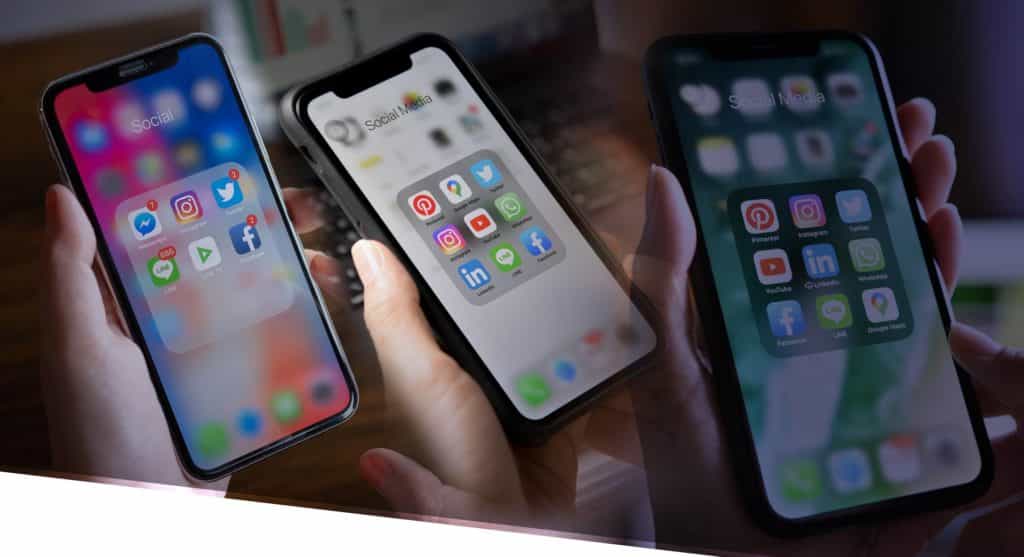There is an interesting business model behind App Stores. In the case of Apple it started with iTunes and it already had clients when it was born on the iPhone. The App Store functions as a large shopping center where the ecosystem of app developers can publish their applications. Premium applications [paid], receive a commission or pay a commission to Apple for providing the platform, the system, the payment gateway and customers.
So these great platforms are e-commerce models to consider. To make the transition to buying songs and applications iTunes did not need to re-request the data from its customers who were already starting to buy iPhones. Thanks to the fact that there is not a big difference between downloading a song and downloading an application to a mobile phone made the transition much easier.
App Stores Business Model
App Business Model Applications
We will see many new models of electronic commerce thanks to the new devices. We will see companies that are going to sell specific applications for cars, the new Tesla for example, there may be an application that detects the state of the wheels, tells you when to change them and the best offer near where you live to change those wheels. It would be absurd having that application on a mobile phone, a mobile phone does not have wheels, or on a computer, or a Tablet. Those that take care of the maintenance of your car, or give you advice on how to drive in a safer way can be Premium applications. An application is a digital product and in the future there will be an application market for other devices than those that we traditionally know today, or use to connect to the internet.
Distribution of physical products.
There is no product in the traditional market that cannot be found in the electronic or digital market.
It is very simple to find news such as, “a plane has been sold on eBay”, “a yacht has been sold”, “a Ferrari has been sold in the first 24 hours since it was launched in a mobile e-commerce store.” All products are on the internet. Physical products are even changing sales structures in the world of digital commerce thanks to their particular characteristics.
It is now feasible to market fresh food products, such as fruits and vegetables, via the internet, which until recently had difficulty reaching the final consumer in large cities.
Whole Foods Market, recently acquired by Amazon, is an example. Whole Foods Market distributes fresh fruits, and all are advantages except for the intermediary. The consumer accesses a better and fresher product, in better shopping conditions. Whole Foods is able to charge more for their product because the intermediaries disappear from the equation. Whole Foods is going to benefit from something very important, the opinions and preferences of their customers. This data will to be able to guide Whole Foods in its digital marketing and in the marketing of new products. The structures change, the ways of buying things change.

Ecommerce Platforms
E-commerce in the United States is no longer in a trial and error phase, more than half of electronic products are purchased online; more than half of wines, oils, and food products are purchased through ecommerce platforms; and 70% of clothing is purchased on electronic websites. Showrooming is very popular in the United States, people keep going to stores, they try on clothes, but they buy on their personal computers because they are cheaper, because it is easier to market physical products in this way. 🛍️
Electronic commerce has already affected all sectors of commerce, no sector has been left out and if it were, it will soon be touched by electronic commerce networks.
Mixed Products.
In recent years we have seen the proliferation of mixed products. Products that have a digital part and a physical part. Examples such as tickets, which are printed at an ATM and allow you to enter a football game, and airline and concert tickets. These are mixed products, those are the most basic we have known so far, but new alternatives are appearing like “artificial intelligence“.

E-commerce Store
E-commerce or electronic commerce refers to all Internet-based activity linked to buying and selling. The increase in electronic activity on the Internet is supported by the use of mobile technologies, online payment methods, Internet marketing, online transaction processing, the use of blockchains and cryptocurrencies.
Interested in starting your online store from scratch?
Schedule An Appointment
Fill out your details below with the service that you need, date and preferred hour and we’ll get back to you to book an appointment.



